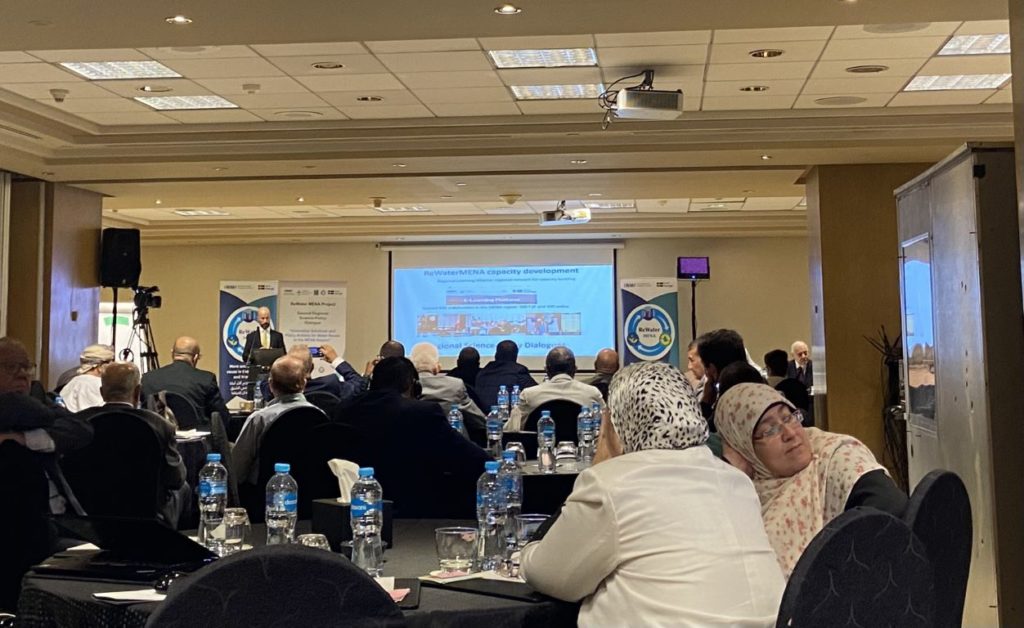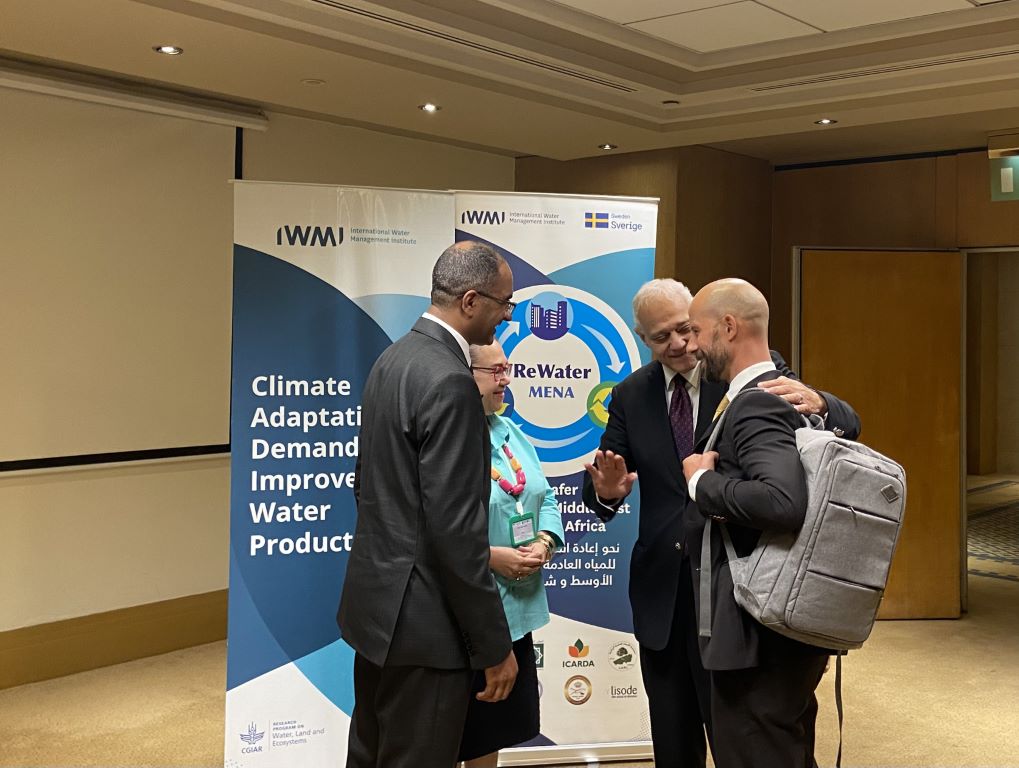Second Regional Science-Policy Dialogue on “Innovative Solutions and Policy Actions for Water Reuse in the MENA Region”

The Second Regional Science-Policy Dialogue on “Innovative Solutions and Policy Actions for Water Reuse in the MENA Region” was held in Cairo, Egypt, on the 5 & 6 of July 2022. The two-day event brought together different stakeholders to reflect on the diversity of challenges and solutions related to water reuse in the Middle East and North Africa (MENA) region.
The conference, organized with the Arab Water Council (AWC), within the framework of the ReWater MENA Project led by the International Water Management Institute (IWMI), was built on the outputs of the 1st Science-Policy Dialogue that took place in Dubai in September 2021. During the meeting, participants presented national success stories where key barriers for water reuse have been overcome and discussed its replication across the region.
The MENA Region is characterized by acute and escalating water shortages, which poses a risk to its present and future development. Population growth, changing consumption patterns, climate change consequences and sociopolitical cleavages are aggravating the situation. Recycled water, thus, is presented as an alternative resource to increase its availability. Nevertheless, despite its potential benefits, water reuse is still an untapped opportunity in MENA. In fact, only 10% of the generated wastewater is treated and directly reused for beneficial purposes.
During the first-day conference, Javier Mateo-Sagasta, Senior Researcher & Coordinator of Water Quality at IWMI and Project Leader of the ReWater MENA project, gave a glimpse of the 4-year ReWater MENA project. The project, which attempts to reverse these figures, aims to address the challenges that currently limit opportunities to upscale and accelerate the expansion of water reuse across the region. Mateo-Sagasta displayed the research results on the wastewater and reuse sector in different MENA countries and addressed the benefits this new resource can contribute to minimize the water insecurity the region is facing. He emphasized that it is important to look at recycled water as an opportunity rather than a risk, since the sociopolitical and environmental trends won’t fade. On the other hand, if no action is taken, these patterns would deteriorate further.

Inadequate legislation, institutional fragmentation, cultural hurdles, and a lack of financial models for cost recovery are some of the historic management obstacles that the region is dealing with. With the objective of resolving these political bottlenecks, ReWaterMENA project also aims to find prospective innovations and proven reuse models by drawing on experience with water reuse solutions already implemented in the region. Some of these success stories in countries such as Palestine, Jordan, Egypt and UAE, were presented at the event. The study of such promising reuse models will be materialized in the publication of the MENA water reuse sourcebook which will contain three main volumes: the state of water reuse, a collection of success stories, and a list of guidelines and recommendations to further implement in the sector.
ReWater MENA is utilizing a participatory stakeholder process with the goal of increasing public acceptance of water reuse in the region. This process offers opportunities for cross-learning to address the common regional reuse challenges. During the two-day session, representatives from different countries in the MENA Region had working group discussions to generate debate on country-specific priority challenges, solutions and actions related to policy, institutional and economic dimensions, and policy actions related to technical, financial, and socio-cultural dimensions.
Ms Akissa Bari (former minister of Minister of Agriculture, Water Resources and Fisheries in Tunisia) suggested that another way to overcome cultural barriers or general distrust when it comes to water use is by reshaping the terminology. Participants commented that terms like “water recycled” and “water reused” should be used instead of “wastewater reuse” because once the wastewater has been treated, it is no longer a waste. In general, wastewater has been undervalued for its negative connotations. To change these perceptions, it is important to keep improving the safety of the practice, communicate transparently and effectively to build trust, and start treating water as a resource that needs to be managed for use and reuse for a more sustainable future.
